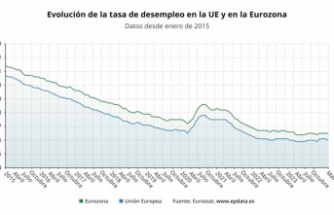On a recent Friday afternoon, a troop of kindergarteners walked outside in a single-file line to their daily 20-minute recess break at Miami Gardens Elementary School.
8 Months Ago
3 Months Ago
6 Months Ago
Once the children reached the edge of a grassy field, they broke into a run. Two girls held hands and twirled in circles in the middle of the field while the other kids split into groups to play tag.
"We get to have fun with our friends and play whatever we want," said Raven Hightower, one of the kindergarteners. "We run around. We can find insects." Her classmates chimed in — they enjoy playing tag and chasing butterflies, too.
Hightower and her classmates are lucky. Most Florida public schoolchildren don't get outdoor playtime every school day — and getting it even several days a week isn't a guarantee in many school districts.
In Miami-Dade County, elementary children are supposed to get it at least two to three days a week, with a few schools testing out the five-day model. Since December, Orange County public schools have required recess five days a week.
But in Pinellas County, students might have recess only twice a week. And in Polk County, one kindergarten class in Lakeland last year got recess for a short time only on Fridays.
Across Florida, how much unstructured playtime public elementary schoolchildren get each day varies greatly from school to school. Some of the state's 67 county school districts don't have a formal policy, and in those that do, administrators often give principals and teachers a lot of discretion.
Pasco, for instance, has no written policy, leaving it to the schools to decide. Most have recess regularly, if not daily. While Hillsborough County school policy does not address recess, the district follows the state law that mandates 150 minutes per week of physical activity for grades K-5. Children get two 30-minute periods with a physical education teacher. On the other three days, they have teacher-directed PE for 30 minutes each day. It can be a structured activity or free play outside on the playground.
It's that inconsistency that's leading passionate "recess moms" to once again lobby lawmakers this spring to pass a statewide, mandatory requirement that elementary schoolchildren get 20 minutes of recess each day.
"One day, we may not need this mandate for our children, but we need it now," said Angela Browning, a mom from Orlando who helped found the group Recess for All Florida Students. "For 5- to 11-year-olds to have movement time equal to 16 percent of the school week — you have to do that if you want them to remain focused and on task and retain that instruction."
Last spring, despite a near-unanimous victory in the House, efforts to enact a mandatory recess law were halted in the Senate over one key lawmaker's concern about the Legislature handing down yet another requirement for districts.
This year, the proposal (SB 78/HB 67) appears on slightly better footing but faces the same hang-up — now in the House. Miami Republican Rep. Michael Bileca, the education policy chairman, isn't convinced a statewide mandate is the way to go, and he's reluctant to limit teachers' flexibility in the classroom.
"I do think it's a high bar, where as a state we're going to go in and dictate that part being mandatory," Bileca said. "We don't make other parts of the curriculum mandatory. We have P.E. and a reading block — and that's it."
But some parents say schools aren't following — or districts aren't improving — their recess policies and that they need lawmakers to intervene.
"Our local districts have failed us. It hasn't been about local control — it's local neglect," said Kate Asturias, a Miami-Dade parent and member of the local Recess for Miami Students group.
Research shows how valuable recess is for kids, not only for their physical health but for mental and social development.
The Centers for Disease Control and Prevention and the Society of Health and Physical Educators, or SHAPE America, recently released detailed recommendations for public school recess. Their guidance: at least 20 minutes of recess daily — "physical activity and play" that comes in addition to normal P.E. classes. Only eight states have enacted such requirements.
CDC and SHAPE America experts say recess improves a child's concentration in the classroom, helping them to remember what they learn and stay on task. It also reduces disruptive behavior and teaches basic social skills: cooperation, teamwork, problem-solving, conflict resolution and more.
"It's really an important part of the school climate," said Michelle Carter, senior program manager for SHAPE America.
Mandy Lipham, a Lakeland mom whose 5-year-old reported having recess only once a week last year, said her son quickly grew miserable without the daily chance to play outside.
"Every day, he would cry: 'I don't want to go to school,'" Lipham said. "He didn't have that joy and he's 5. It was a shame."
Whether it's lawmakers, school administrators or parents, no one disputes the value of recess; they're all "for" recess. The disagreement — and resistance from some districts — is over the logistics of how to fit recess into an already jam-packed school day.
"There is a lot of emphasis on performing well on the mandated tests," United Teachers of Dade president Karla Hernandez-Mats said. "Therefore teachers focus on utilizing every minute of instructional time."
Since every district treats recess differently, how it's defined in each county becomes key.
When Orange County adopted its first written policy on recess in December, the county modeled it after the legislative proposal — defining 20-minute-a-day recess as "supervised, safe and unstructured free play." But in several other large counties, "recess" is a vague term — like "physical activity" — which leads to some parents complaining that their children don't have true recess.
For instance, Pinellas schools don't have an official board-approved policy on recess. But in practice, teachers are required to have 20 minutes of "health education" time on the two days a week when students don't have P.E.
Depending on each school's space and schedule, that could mean traditional outdoor recess on a playground or "structured" movement in the classroom using online activity guides, said Shana Rafalski, executive director for Pinellas schools' elementary education.
Rafalski said that a staffing and time are obstacles. Recess either needs to come from instruction time within the existing school day or more time needs to be added. And if that's the case, teachers — at additional cost to schools — need to be paid for the extra time supervising recess.
"We agree that our kids need time and to be outside playing," Rafalski said, but "it's an unfunded mandate."
Pinellas has the shortest school day in the state with six hours of instruction. When the district began requiring the twice-a-week minimum for recess, schools sacrificed math time rather than add time to the day, Rafalski said.
The "recess moms" don't buy districts' excuses for limiting or avoiding recess time.
"There is time in the day," Browning said.
"If you make it a priority, but some districts aren't," added Amy Narvaez, another "recess mom" from Orlando.
The state's largest school district, Miami-Dade County Public Schools, mandates recess twice a week for 20 minutes or three times a week for 15 minutes. In August, the district gave principals the option of adding an extra recess break every week.
Miami-Dade is also testing 20-minute daily recess in some of its elementary schools. The district launched a pilot program last fall for kindergarteners and first- and second-graders in 11 schools with extended days and hired independent researchers to evaluate how added play time affects attendance, behavior and academic performance.
"This will allow us to see the impact recess has on the school and on the whole child," said John Pace, an administrative director with the district's division of academic support. "It impacts them physically, emotionally, academically."
Miami Gardens Elementary is one of the schools trying out the extra recess this year and, so far, principal Kathleen John-Louissaint said the impact on students is positive.
"I think last year we had a little bit more behavior issues toward the end of the day; this year, not so much," John-Louissaint said.
Kindergarten teacher Genevieve Paul-Henriquez made a similar observation as she watched from the edge of the field while her students played during recess.
"When they go back in, they are a little calmer and ready to learn, because they've had this brain break," Paul-Henriquez said.
Miami Gardens Elementary carves out its 20 minutes for daily recess from 90-minute blocks for math instruction; 90 minutes is already well beyond the minimum instruction time for math.
John-Louissaint said some teachers initially worried about losing class time but are less concerned now that they're reaping the benefits of extra recess. Nationally, experts have seen the same change of heart in teachers.
"There's a lot that's squeezed into the school day for students, and so administrators are kind of pulling [recess] away to save time so they can focus on other academic subjects," said Carter, of SHAPE America. "People are nervous that if we take time away from academics, there's going to be negative results in terms of test scores and things like that, but that's really not the case."
This spring, Florida lawmakers face another debate over recess. Browning and her fellow "recess moms" have already made two trips to Tallahassee this year to personally seek lawmakers' support.
But it may be a few weeks yet before the recess bills could be heard and voted on in committee. The 60-day session starts March 7.
The Senate Pre K-12 education budget committee will hold a workshop discussion on recess on Wednesday, and chairman David Simmons, R-Altamonte Springs, said he's eager to hear more of what the "recess moms" have to say.
"There are only so many hours in a day and school districts obviously have a lot of pressures on them, but the idea is: What can we do to assist in this decision?" he said.
Across the Capitol, the House's recess bill is ready to be heard by the Pre K-12 innovation committee. Chairman Chris Latvala, R-Clearwater, said he hasn't made "any concrete plans" on which bills he'll take up yet and he doesn't expect to consider bills until after session starts.
But Latvala was a co-sponsor of the recess bill last year and voted for the proposal then.
"Frankly, it's one of those things that if the local school boards could just do it themselves, it would make our job a little easier," Latvala said. "If they tied in recess as either part of P.E. or did it on their own, we wouldn't have to mandate. But there is some push-back from local school districts."
Bileca, now the House education policy chairman, and current House Speaker Richard Corcoran, R-Land O'Lakes, were the only two House members to oppose the recess bill last year. Corcoran has indicated his support this year, though, now that a provision has been removed that would have prohibited schools from withholding recess as punishment.
"I think it will pass this year," he recently told WUSF radio.
But without a firm commitment from Bileca — who could single-handedly kill the bill if he chose not to take it up in committee, as a Senate chairman did last year — the "recess moms," although undeterred, are nervous about their chances for success.
"We're thankful for the speaker's support, but we need his help now," Browning said.
Times staff writers Jeff Solochek and Marlene Sokol contributed to this story. Kristen M. Clark can be reached at kclark@miamiherald.com. Follow @ByKristenClark
Our editors found this article on this site using Google and regenerated it for our readers.













